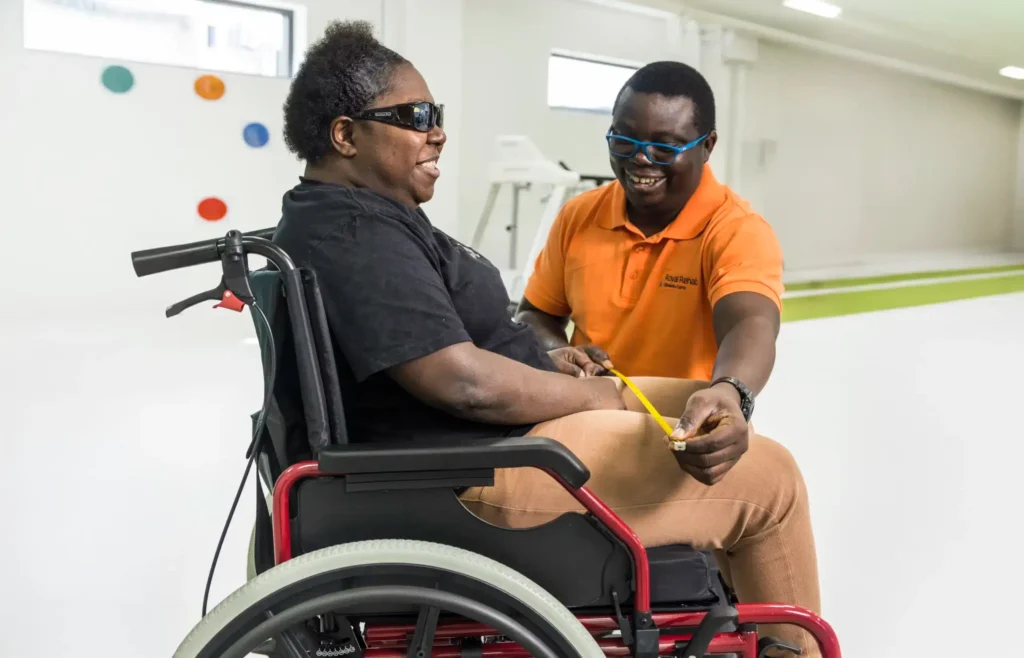Whether you’re recovering from injury, living with a physical disability, managing a neurological condition, or adapting to physical or cognitive changes, our occupational therapists help you build skills, enhance independence, and improve your quality of life at home, at work, and in the community.
We also provide community-based Occupational Therapy services across the Gold Coast region.
Hand and finger exercises, dexterity drills, coordination activities, and occupation-specific training to help improve control for tasks such as writing, using utensils, or fastening buttons.
Therapists guide clients through strength and flexibility exercises, stretching routines, and occupation-specific training to improve mobility for activities like dressing, bathing, and eating.
Memory games, problem-solving tasks, attention-building exercises, and occupation-specific training are used to enhance cognitive processing, organisation, and daily decision-making.
Visual tracking exercises, contrast training, and environmental modifications help individuals navigate safely and improve their coordination.
Techniques that focus on how individuals move and perform tasks – such as joint protection strategies, activity pacing, energy conservation, ergonomic adjustments, and therapeutic exercises – can help manage and reduce chronic pain effectively.
Social skills training, structured routines, and graded exposure to work or community environments can help individuals build confidence and reintegrate into daily life.
Education for caregivers on safe lifting techniques, adaptive care strategies, and ways to encourage independence while providing support.
Comprehensive assessments identify the need for assistive technology or specialised equipment such as splints, wheelchairs, grab rails, or adaptive utensils. Our team also provides training on correct use to support comfort and safety
Customised strategies, home modifications, driving rehabilitation programs and training in daily living activities (e.g., cooking, self-care, transportation) enable individuals to regain autonomy.
Job-specific task training, workplace modifications, and gradual return-to-work plans help clients safely resume employment and achieve long-term outcomes.
The assessment identifies a person’s strengths as well as areas where support may be needed due to disability, injury, or illness. Our experienced clinicians interpret the results to guide goal setting, inform care planning, and support funding applications, including those for the NDIS.



Every day here is a reminder of why I chose this profession. We’re not just supporting people, we’re helping them rediscover what’s possible.
In the spirit of reconciliation, Royal Rehab acknowledges the Traditional Custodians of Country throughout Australia and their connections to land, sea, and community. We pay our respects to their Elders past, present and future and we extend our respects to all Aboriginal and Torres Strait Island peoples.
To improve your experience and ensure your data is protected, please note you will be redirected to PracSuite, our secure booking platform.
If you're ready to sign up now, please select the most appropriate option and complete the relevant form below.
